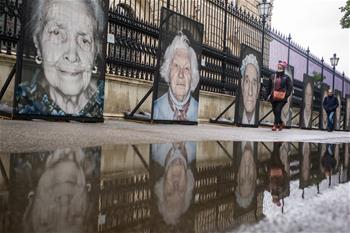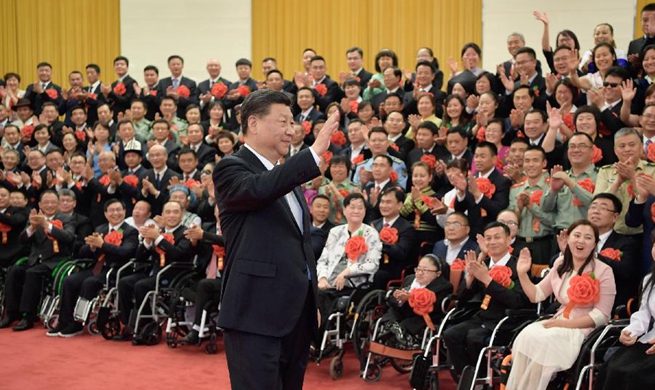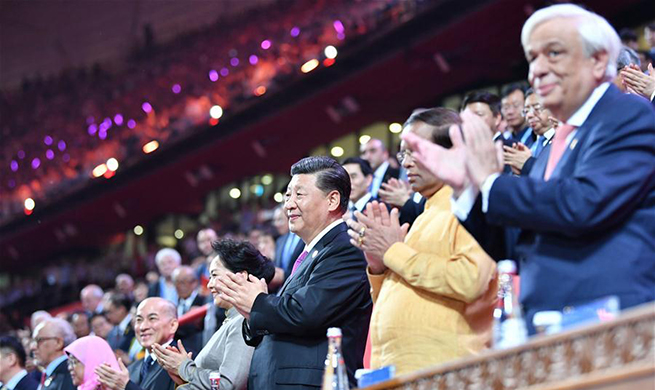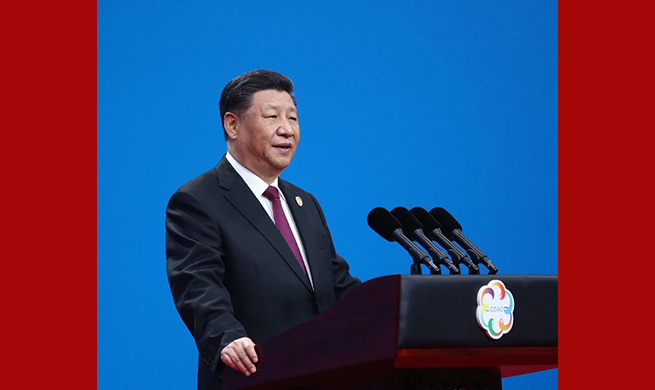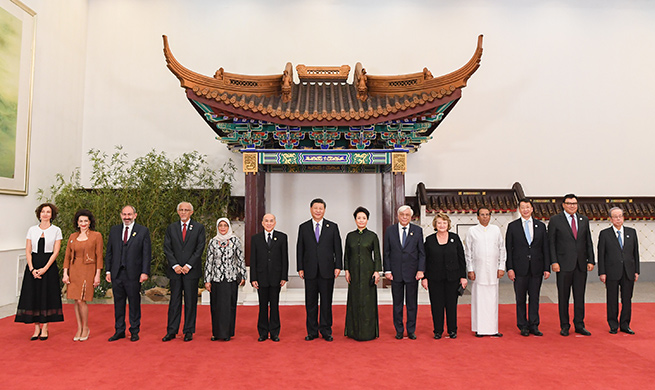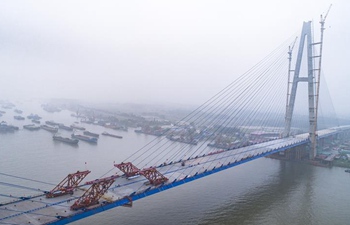GENEVA, May 17 (Xinhua) -- The World Meteorological Organization (WMO) called on Friday for a drastic change of course in order to tackle climate change, which has been associated with sea level rise and extreme weather as a result of record high greenhouse gas levels.
"We live with the highest concentration of carbon dioxide in the atmosphere for 3 million years," WMO Secretary-General Petteri Taalas told the Global Platform for Disaster Risk Reduction, which is organized biennially by the United Nations (UN) Office for Disaster Risk Reduction.
The four warmest years on record have been in the past four years, and the warming trend, which has lasted since the start of this century, is expected to continue as a result of the increase in greenhouse gas levels. Climate change mitigation is essential, as is climate change adaptation, he stressed.
According to WMO records, 14 weather and climate-related disasters occurred last year in the U.S. alone, causing a devastation valued at more than 1 billion U.S. dollars. The total loss was approximately 49 billion U.S. dollars. Worldwide, more than 35 million people were affected by floods last year.
This year, tropical Cyclone Idai left more than 1,000 people dead in Mozambique, Zimbabwe and Malawi. A few weeks later, tropical Cyclone Kenneth became the strongest storm to make landfall and strike the furthest north in Mozambique since modern records began.
"If I had to select one sentence to describe the state of the world, I would say we are in a world in which global challenges are more and more integrated, and the responses are more and more fragmented, and if this is not reversed, it's a recipe for disaster," UN Secretary-General Antonio Guterres commented in the "Global Assessment Report 2019," published to coincide with the global platform.
Earlier this month, the WMO hosted the Second Multi-Hazard Early Warning Conference, which focused on ways to improve warnings and action in the face of hazards like earthquakes, volcanic eruptions or extreme weather.
Participants recommended that while innovations in information and communication technologies can be effectively used to reach vulnerable communities, it is vital that an early warning system takes into account peoples' needs and their perceptions of risk.
The conference also called for impact-based forecasting based on partnerships between the scientific and research communities, and humanitarian and development practitioners, to ensure that warnings translate into actions.






